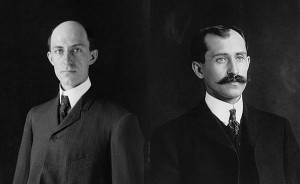Home »

Why, start with Why?
A four part series on how defining your why can make significant changes to career paths and business decisions.
Part one – Why
Simon Sinek’s 18 minute Ted talk ‘Start with Why’ has had more than 1.7 million viewers since it was first posted on You Tube in September 2013. His simple message has struck a chord with individuals around the world. Individuals searching for better ways to solve problems make better career and business decisions and bring more happiness to their lives. Sinek outlines how the traditional method of problem solving begins with How, What and finally Why. He proposes that a better way is to begin with Why, then How and finally What. He calls this concept the Golden Circle.
Several examples support his claims, the Wright Brothers and the invention of the airplane being one, he points out that their goal was not fame and fortune but the improvement of the lives of all mankind by the ability to fly. Another good example is Steve Wozniak the co-founder of Apple and the guy who created the Mac. Steve will tell you that his burning desire was to build a computer that everyone could afford. He would have willingly given them away for free; he did not do it for the money it was his Why that drove him to succeed.
 Sinek’s simple change in thinking can be applied to every facet of our lives. It is particularly valuable when trying to choose a career path or settle on future education or deciding what business path to take. Success at any endeavor depends on what the Why is, learning how to find that Why is key. I would encourage everyone to take the 18 minutes needed to watch this Ted talk video.
Sinek’s simple change in thinking can be applied to every facet of our lives. It is particularly valuable when trying to choose a career path or settle on future education or deciding what business path to take. Success at any endeavor depends on what the Why is, learning how to find that Why is key. I would encourage everyone to take the 18 minutes needed to watch this Ted talk video.
To apply Simon’s concepts we first need to consider how we developed our current perception of How, What and Why and how to reverse our thinking. Parents can relate to why, the first question every child asks shortly after they learn to talk is “Why?” And the standard parent reply in exasperation is, “Ask your Father” or “Ask your Mother!” It is the natural child curiosity about everything that drives us to ask the question why. We needed to know, it didn’t matter if we understood it was just our natural curiosity about everything.
As we grow older our concepts change, we not only want to know Why but also How. By the time we enter pre-school we are generally over the why phase, and ready for the how stage, how to read, write, add and subtract. We also learn how to play games or the piano or other musical instrument.
Our years of growing up and getting educated are all about How and What. Graduation from high school was an achievement, it is testament to our ability to learn and develop a basic knowledge of a number of subjects. It is only natural to assume after spending so much time learning how, that when career or profession choices are needed we follow the same path with the focus on How and What. In fact we really never give it a lot of thought; we have some idea of what career path we want to take and go to college or university to learn how. We are again victims of how we have been taught to learn. For the most part a public school education is about knowing. We are taught that if we know the right answer we will get a better than average grade, better grades more recognition. We learn quickly that failing to get good grades are painful, Cs and Ds on a report card leads to interesting dinner conversation, for the most part conversations we would rather not have.
This is quite contrary to the real world, where most successes come from many failures; not being afraid to fail leads to experimentation and it is experimentation that creates innovation. Ironically the really successful innovators such as Edison and the Wright brothers were not great students, they did not succeed in the education system and in fact in Edison’s case his mother removed him from the school at an early age and homeschooled him instead.
 The Wright brothers, although both graduated from high school and were well read, they did not go to university and were not engineers. Their success may be because they had no preconceived ideas about how to solve the problem and were willing to try anything. From the time of their first flight at Kitty Hawk until their first public demonstration of flight at Le Mans, France, they had countless crashes and numerous failures.
The Wright brothers, although both graduated from high school and were well read, they did not go to university and were not engineers. Their success may be because they had no preconceived ideas about how to solve the problem and were willing to try anything. From the time of their first flight at Kitty Hawk until their first public demonstration of flight at Le Mans, France, they had countless crashes and numerous failures.
It would have been very easy for the brothers to give up, but rather they persevered. Often when asked by reporters why they kept on their reply was simply that progress takes patience and that failure was to be expected. They were very careful never to fly together; if one was killed the other could carry on. This approach paid off, when Orville suffered a near fatal crash at Fort Meyer and spent a year recovering Wilbur was able to carry on and demonstrate their flying machine all over Europe.
When it comes to making career decisions and setting life goals, our fear of failure becomes a hindrance, we suppress our desires because they don’t fit the picture we have of what success in life should look like and out of fear we often don’t take the risk necessary to achieve real satisfaction. Our natural curiosity has been stifled by the system. Asking the Why question is part of the process of reversing what we have been taught. Why is the exact opposite of knowing. There is no right answer and you cannot fail the exam, it is all about uncovering what you want to achieve, what will make you excel.
You may have seen the Lexus advertisement with Steve Wozniak, if you haven’t, Google it. Although it is a commercial plug for Lexus it is an excellent example of how one man was driven by his Why to achieve outstanding results. You may not decide to create the next evolution of the computer but your why could make a difference in the lives of others if you have defined it clearly.
Unfortunately a university education today has become too expensive to spend time trying to figure out what one’s life goal is. Taking courses with the hopes that something will tweak ones interest really isn’t an option. That approach most often leads to a mountain of student debt that may never get paid back and to add insult to injury the graduate often ends up in the same go nowhere job they had before they started. Sadly this leads to really bright people who have something to contribute never ever achieving their full potential.
Admittedly things are changing you can now go online and find free courses or courses with a very small tuition, that will give you credits and allow you to see if that is the direction you want to take without investing a small fortune.
A good example is MOOC – massive open online course. When you Google MOOC you will find lists of courses you can enrol in for free. If you Google any major university you will find lists of free or very cheap courses. This is just another example how education is beginning to change, technology has changed how we approach most everything in life and gradually the education system is moving away from the traditional methods of teaching out of pure necessity to keep up with the times.
Taking the time to think about Why is the beginning of the journey to a more fulfilling career and life. It isn’t an easy task and it does require concentration. We have to start to ask the question Why again, not of our parents but of ourselves, what will motivate you to begin the journey? What is your why? Take the time to think about this question, it doesn’t cost anything just time and contemplation. Thanks to Simon Sinek and his simple method of reversing how we look at Why, there is a solution.
Turn off the cell phone, get up from the video game and find a quiet place to think. In the early stages it will take some discipline to stay focused, that is only natural we all have a tendency to let our minds wander off to what seems to be more important. Stay focused, try to empty your mind of all the noise and just think about your inner self. Once you get to that place of mental solitude you will begin to develop the ideas that form your why.
You may want to consider learning to meditate, it is not difficult and it can help you achieve your objective. One simple method is to sit in a comfortable position in a chair or on the floor relax and focus only on your breathing. This allows you to empty your mind and not think of anything except the natural act of breathing in and out. It takes time to learn how to do this, but it is progressive, if you only manage a minute today you may get to five minutes by the end of the week. Each attempt will build on the past attempts until it becomes a natural occurrence.
 Plan to mind map. Mind mapping is writing down using symbols, pictures and words what you are thinking. Get a large blank sheet of paper and tape it to a wall use coloured pens to separate your thoughts. Start by putting “WHY” in big bold letters in the middle. Write down everything that comes to mind, stick to the original question of; “What is my Why?” It is important to get your thoughts and ideas on paper.
Plan to mind map. Mind mapping is writing down using symbols, pictures and words what you are thinking. Get a large blank sheet of paper and tape it to a wall use coloured pens to separate your thoughts. Start by putting “WHY” in big bold letters in the middle. Write down everything that comes to mind, stick to the original question of; “What is my Why?” It is important to get your thoughts and ideas on paper.
When you start with why you will begin to define what is really important to you. What you want to achieve is all that matters, no one else can determine what you want; you have to mentally challenge yourself to answer your why. Is it worth your time? Are you happy in your present circumstance? If not then you have no choice, you have to change, and that takes action. It has nothing to do with society in general, other people in your life or the past; it is all up to you. It is all about your attitude and your why. You may find your why in a short span of time, it has been lurking in your subconscious waiting for you to drag it out, or it could take some time.
Either way it is important to write down what you are thinking all the time, use your mind map as a guide. Begin keeping a journal, you want a record of what you are achieving. Purchase a lined notebook, spiral bound lab notebooks are inexpensive and quite satisfactory. The lab notebook is the most important tool of every researcher, PHD student, or writer and as you are now researching your why you need to treat your efforts the same way, keep an accurate record of everything you think about.
One of the most difficult things to learn is that keeping an accurate record of what you are thinking and working on is essential to your success. Most of us are reluctant to put what we think on paper, we feel we have the ability to recall; however, that is not the case.
Clearing the mind by getting what you are thinking on paper means more capacity to think. Nature is not in a hurry, you need to take a lesson from nature and not be in too big a hurry, allow time to think things out. Don’t make to do lists, they stifle your creativity and pressure you to do things in a hurry. The journal records your thoughts throughout the day as you have them and also allows you to clear your mind before retiring at night. This is essential, it allows you to sleep better but it also allows your subconscious mind to work on the problems while you are asleep. You will be amazed at how many effective solutions you come up with early in the morning.
Make keeping a journal a habit you will not regret it. To prove the point; as researchers began working on building the first computers in the ‘40s and ‘50s there were several separate groups working on the problem at the same time. Later when these groups of researchers attempted to file for patents the similarity in the patent applications led to a number of very spectacular lawsuits. The deciding factor in these lawsuits was the original lab notes of the researchers. That is how essential a notebook of your thoughts can be, you can’t remember everything so write it down.
The Wright brothers went to court over patent infringements nine times and won every case. When they first began their quest to fly they did not keep lab notes however they soon learned how important their journals would become and began to keep detailed notes of every event. When others made claims they had flown prior to the Wright brothers every claim was refuted by the evidence compiled in their notes.
Nothing comes without a cost; you have to invest time and effort to achieve great results. A good example of how a huge effort over a relatively short period of time could make a significant impact on society is Bill Gates and Paul Allan’s work to produce the first operating system for the IBM PC. When IBM contracted their fledgling company Microsoft to write MS-DOS, Bill and Steve spent days writing the code, often they never slept. In the span of less than a year they created a program that launched the PC and launched Microsoft as the most successful software companies in history. Their Why was clearly defined, they realized that if they could achieve the objective they would change the world and they set out to achieve that through dedicated effort over a short time span.
Hopefully you have begun the exercise and you are beginning to identify your why. You’re burning desire, how you want to serve your fellow man and what you want to achieve in life. Thomas Edison once said when asked where all his good ideas came from, “They were in the Universe just waiting for him to tune himself in.” Your purpose is waiting for you too; you just need to get tuned in to your why.
Starting with why is a very important exercise, figuring out your why, is the ground work on which you build your career goals, business goals and your life goals. As your why becomes clear in your mind all the other issues that are hindering your progress will begin to disappear. Figuring out your why is defining what your real purpose in life is, what excites you and that gives you satisfaction. It will become your life purpose. Keep your why clearly in front of you as you consider the next phase.
Part two will talk about the what, that is what your goals are and how to define them based on your why.
– Colin J. Campbell, CFP, CLU, Ch.F.C. is Managing Partner of Guidance Planning Strategies Ltd. in Cranbrook; he can be reached at [email protected]








